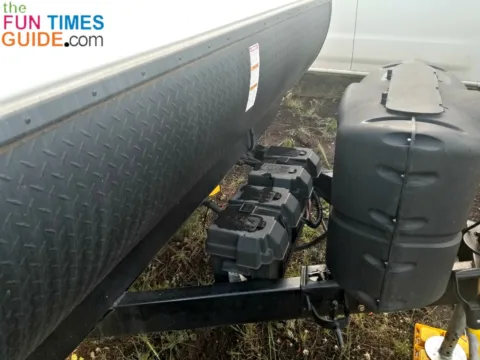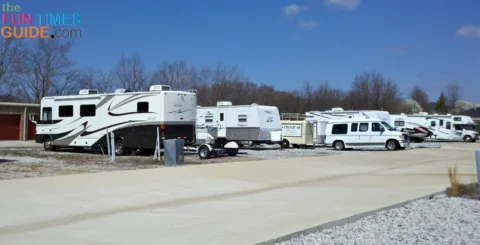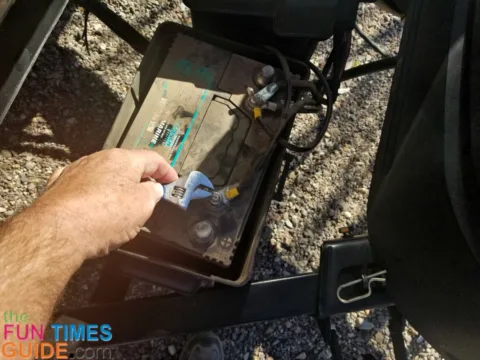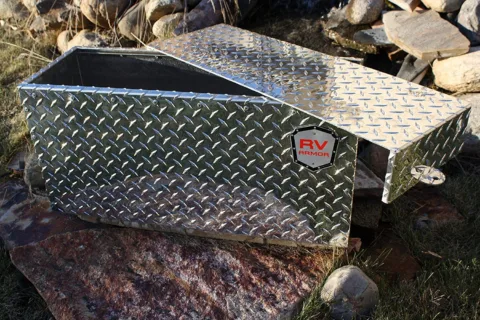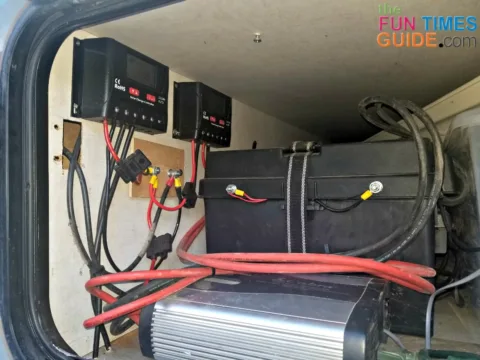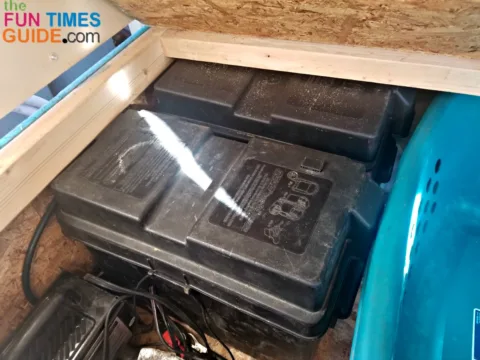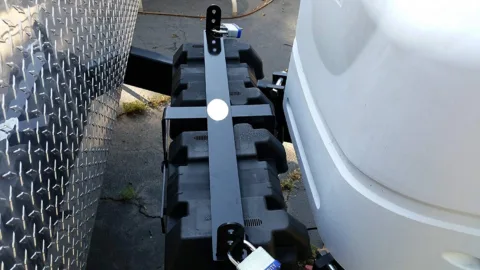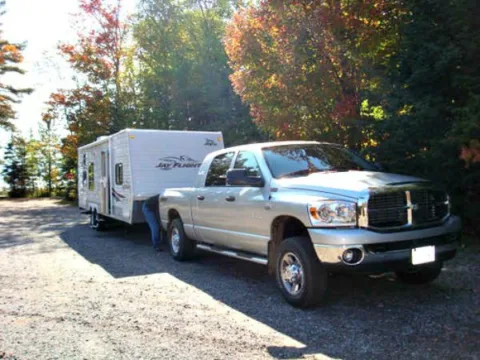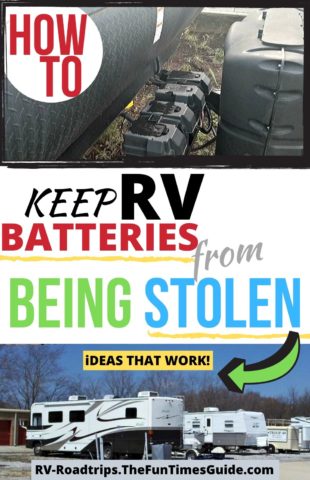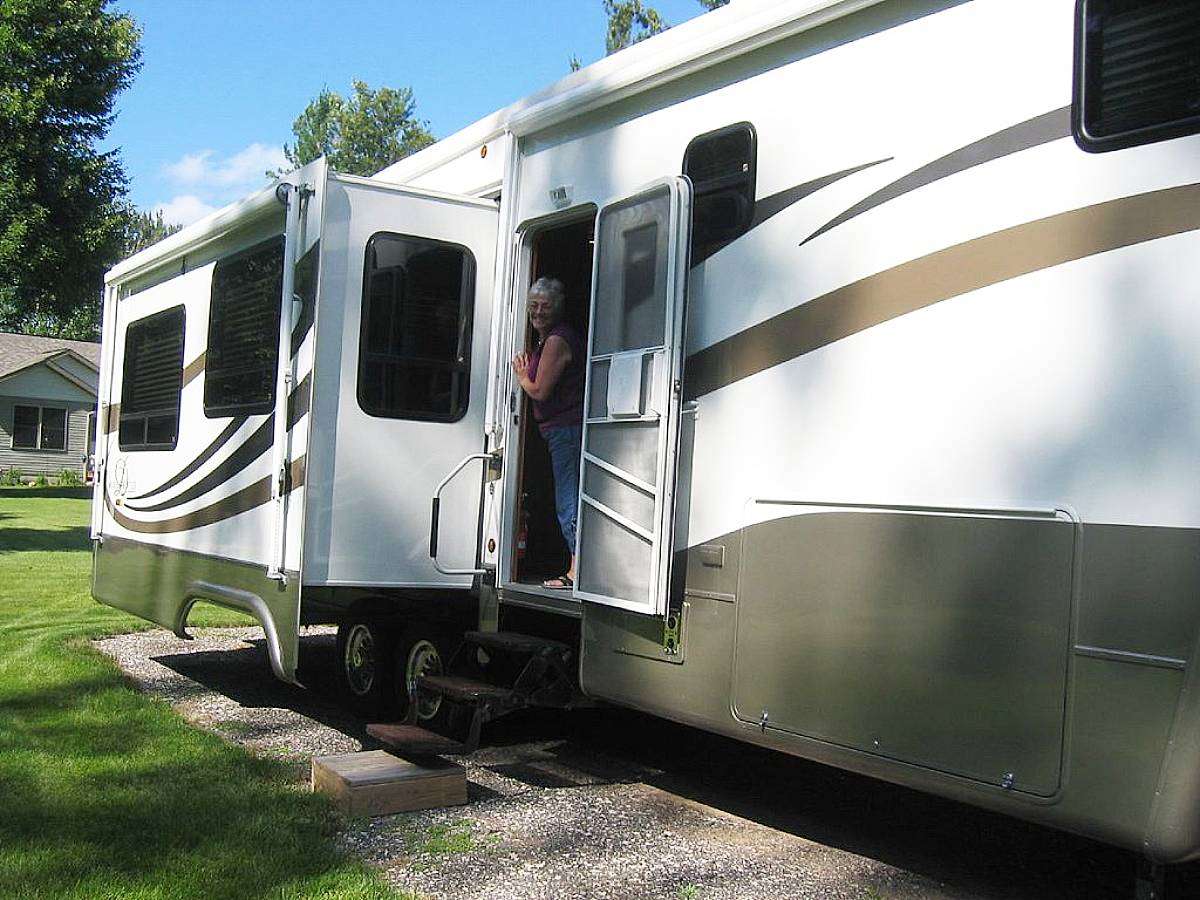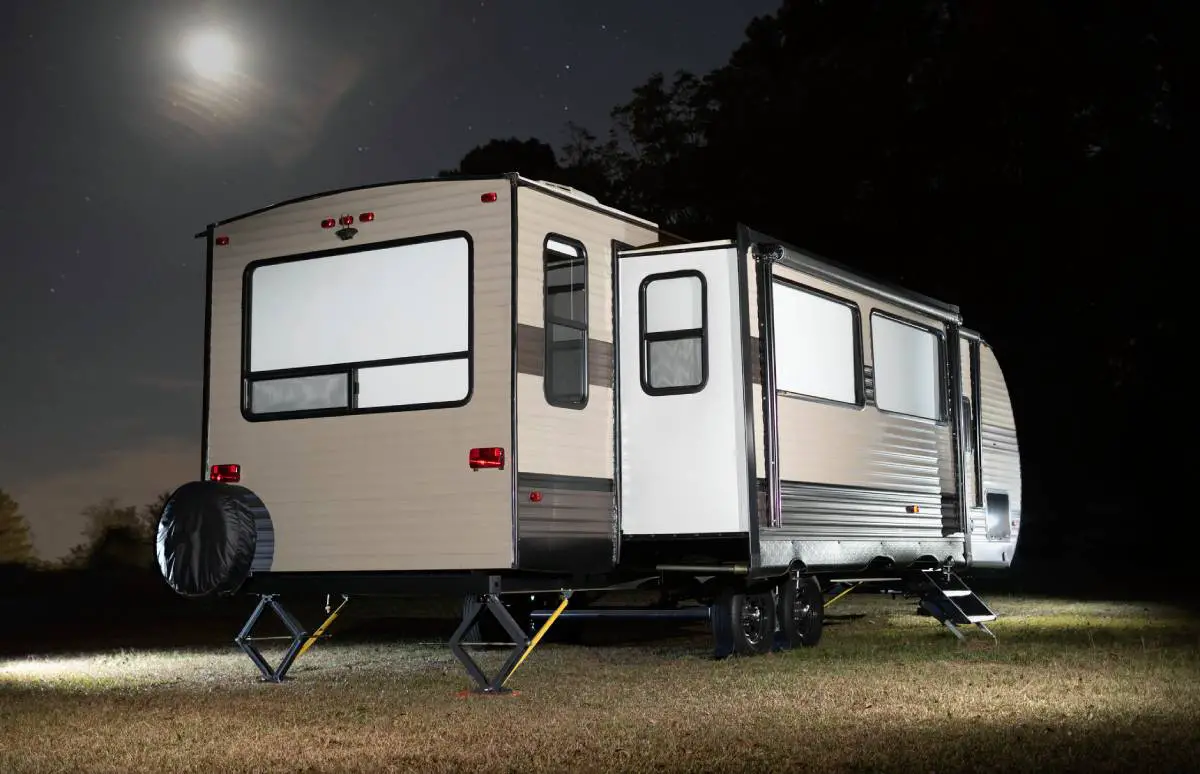Here’s what you need to know about RV battery theft protection, based on my own experience and personal advice as a full-time RVer…
Deep-cycle lead acid batteries cost $100 — or more. So to find them missing when you’re preparing for an RV outing may be enough to cancel the whole trip!
In today’s world of restrictive HOAs (Home Owner Associations), many communities don’t allow RV owners to keep an RV on their property for more than 24 hours.
This is designed to restrict their presence to the loading and unloading process only — and create the illusion of a clean and neat neighborhood for the majority of time.
As a result, RV storage lots are prevalent… and crowded!
Following is everything you need to know if you keep your RV at a storage facility. And even if you don’t, I’m going to show you how to lock RV batteries — so you don’t become the victim of RV battery theft. (Because an RV battery can be stolen from anywhere while you’re parked.)
RV Storage Lots Are Not Safe
Storage facilities are found near almost any modest-sized town or metropolitan area.
The whole idea of storage lots rubs me the wrong way for many reasons — not the least of which is theft or vandalism to the RVs stored there.
I mean, the point of paying rent to store your RV is the assumption that it will be safe. Sadly, this isn’t always the case.
TIP: Always keep comprehensive insurance on anything that you’ve placed in storage. In every storage lot contract, there’s a clause that states the storage facility owner is not responsible… for anything!
Motorhomes and 5th wheel trailers are less likely to be victims of battery theft — because the batteries are usually locked in compartments or mounted under the hood. They are easily removed in 2 minutes.
Travel trailers are the prime targets of RV battery thieves!
Why Travel Trailers Need RV Battery Theft Protection
In a travel trailer, the batteries are usually mounted right out in the open on the tongue of the trailer.
Often, no tools are required to disconnect and remove the 2 batteries in as little as 30 seconds!
Travel trailer batteries are usually secured with only a light-duty nylon web strap and 2 simple wingnuts that are used to make the electrical connections. (They’re often only finger tight.)
RV battery theft is a crime of opportunity. If you have a couple hundred dollars of valuable property sitting out (at a storage facility, parking lot, or anywhere else), then it’s only a matter of time before you become a victim.
How To Lock RV Batteries
There are a number of ways you can protect your RV batteries from walking off in the middle of the night.
#1 – Mount a locking battery box on the tongue of your RV travel trailer.
This will safely and securely lock the batteries out of sight. There are a variety of locking battery boxes available. NOTE: One disadvantage is the fact that a locked box on the tongue of an RV trailer obviously contains batteries. If a battery thief comes prepared, they can likely find a way to get into the box.
#2 – Relocate the batteries into a storage compartment.
This takes away the visual cue that keeping your RV batteries out in the open provides. It likely will also give you a larger space — allowing for more batteries and extending your off-grid RV living abilities. This is important if you’re considering installing a solar electric system. If you move lead acid batteries into a storage compartment it’s essential that you provide proper ventilation. Otherwise, poisonous gas may build up, creating an explosion or a health hazard. TIP: If you upgrade your batteries to AGM style sealed batteries, there is no need to provide ventilation — because there’s no off gassing of dangerous gases.
#3 – Add RV battery locks.
A battery shackle, or similar locking bar system, can provide protection for batteries that are mounted in the standard tongue position. It still shows where the batteries are, but it’s obvious to potential battery thieves that it will take more than just a pair of pliers to remove them! NOTE: Anything that slows down a thief is a good way to get them to move on to an easier target. After all, yours isn’t the only trailer in the storage lot.
The Bottom Line
Lithium RV batteries are becoming more popular with those seeking long term off-grid capabilities. They are a serious investment — ranging in price around $1,000 per battery.
Making such a commitment to technology should also include an equally comprehensive investment in theft protection.
TIP: If you’re counting on your RV insurance to cover such items, be sure to check with your insurance agent ahead of time. Often, there are rather low limits on possessions. Also, if an upgraded solar system and expensive batteries weren’t part of the RV from the factory, they may not be covered.
Let’s face it, we aren’t in Kansas anymore.
The notion of being able to leave your expensive RV unattended in a storage lot (or your backyard for that matter) and expecting it to be in the same condition when you come back is rather naive.
My own RV travel trailer has been the victim of teenage vandals in the past. Their intent was to score anything of value that could be sold.
I’ve also known of friends who had RV batteries disappear after the storage lot personnel moved their trailer to just outside the fence — so they could pick it up after work. As I mentioned earlier, it often takes about 30 seconds to remove a battery from most RV travel trailers!
Here’s my video showing how RV batteries can be stolen so quickly:
Like this post? Save it to read again later… or share with others on Pinterest!
I’ve been involved in RVing for over 50 years — including camping, building, repairing, and even selling RVs and motorhomes. I’ve owned, used, and repaired almost every class and style of RV ever made. I do all of my own repair work. My other interests include cooking, living with an aging dog, and dealing with diabetic issues. If you can combine a grease monkey with a computer geek, throw in a touch of information nut and organization freak, combined with a little bit of storyteller… you’ve got a good idea of who I am. To date, I’ve shared my RV knowledge in over 300 articles here at The Fun Times Guide! Many of them have over 25K shares.

